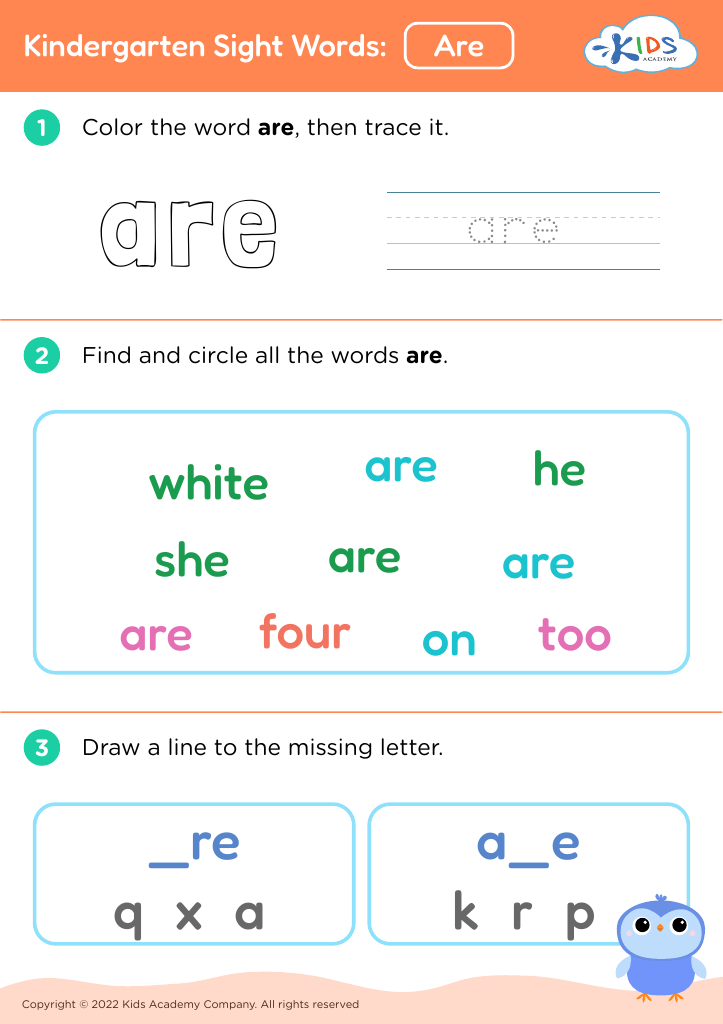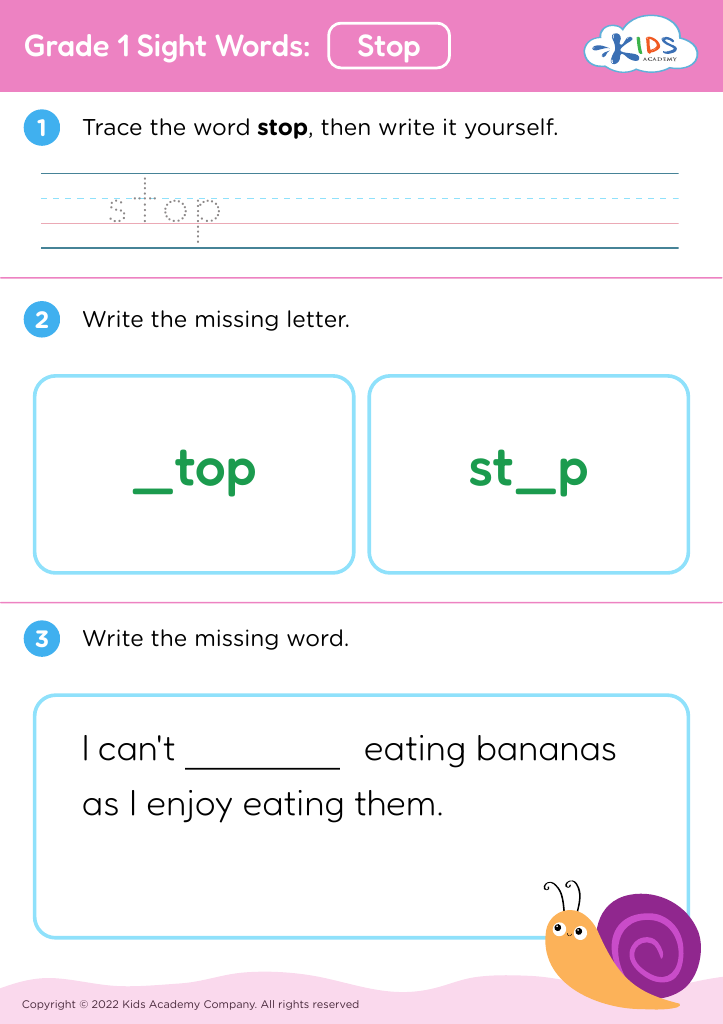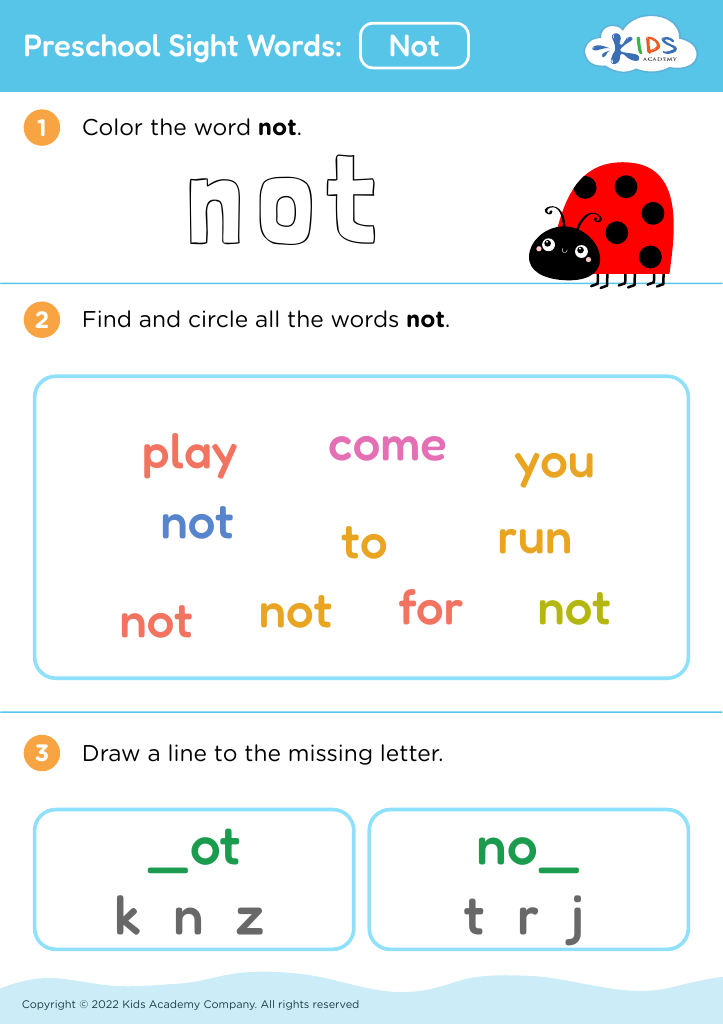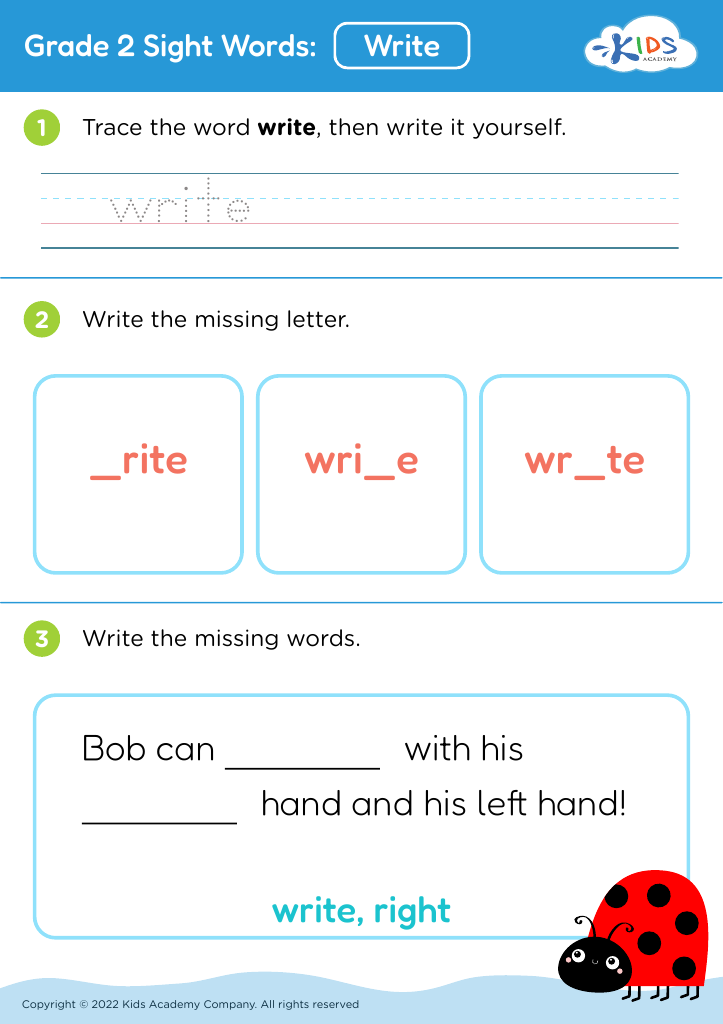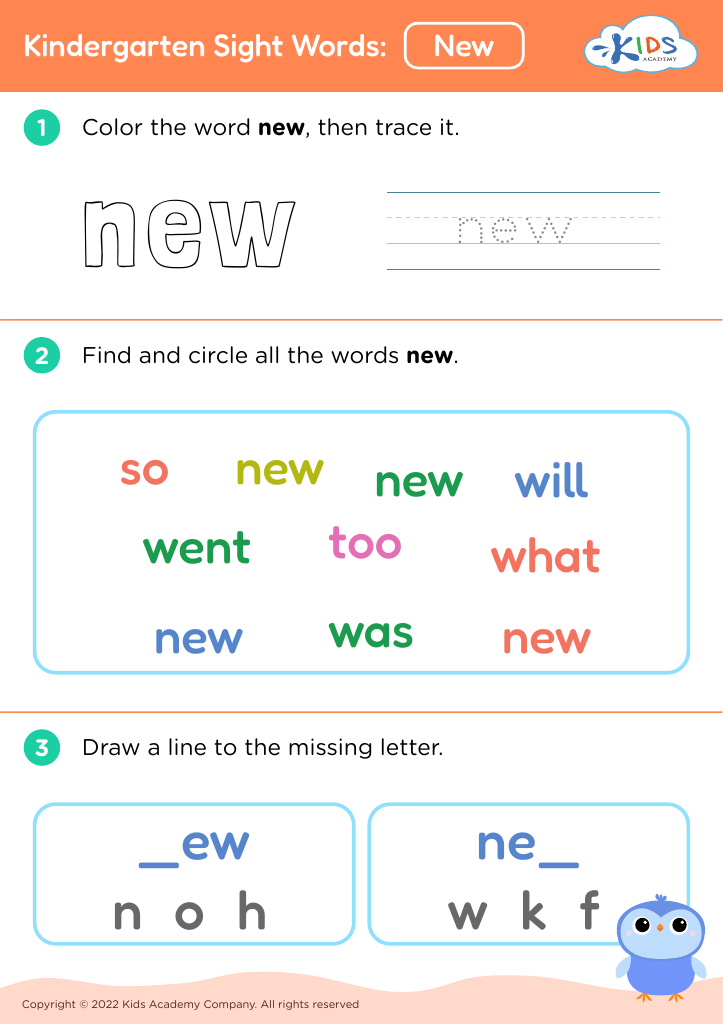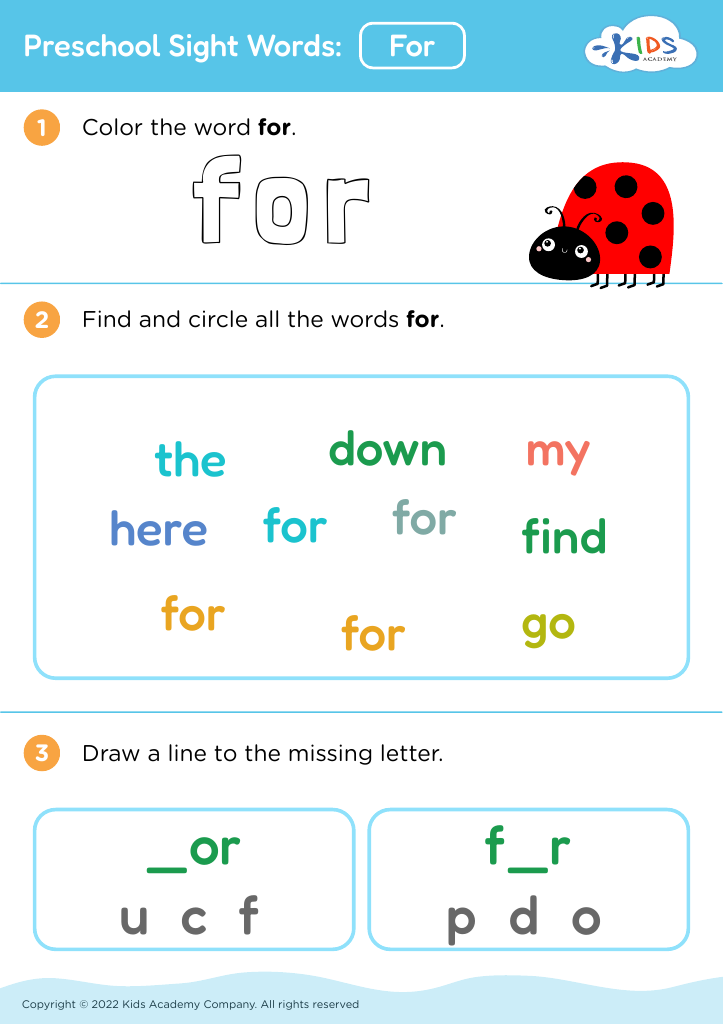Basic Addition Skills Building Vocabulary Worksheets for Ages 3-7
8 filtered results
-
From - To
Enhance your child's early math skills with our engaging Basic Addition Skills Building Vocabulary Worksheets, specifically designed for ages 3-7. These worksheets offer a fun and interactive way to introduce young learners to fundamental addition concepts, while simultaneously building their vocabulary. Children will enjoy colorful illustrations and age-appropriate activities that make learning enjoyable. Our resources help improve number recognition and counting skills, laying a solid foundation for future mathematics. Perfect for home or classroom use, these worksheets make it easy for educators and parents to support a love for learning! Download today and watch your child's confidence in addition soar!
Parents and teachers should prioritize building basic addition skills and vocabulary for children ages 3-7 because these foundational abilities are crucial for intellectual development and lifelong learning. Early math skills, including addition, not only enhance cognitive abilities but also foster problem-solving skills and critical thinking. Mastering simple addition lays the groundwork for more complex mathematical concepts that children will encounter later in school.
Moreover, building a strong vocabulary related to math helps children articulate their understanding of addition, which deepens their comprehension and retention of information. When children learn terms like “plus,” “sum,” and “equals,” they can engage more easily in discussions about math, encouraging communication and sharing of ideas. This vocabulary enrichment supports language development, helping children to express themselves clearly and understand instructions given by parents and teachers.
Furthermore, developing basic addition skills at this age promotes confidence and a positive attitude toward learning. Children who grasp these concepts feel empowered, becoming more willing to tackle challenges in mathematics and other subjects. Engaging parents in supporting these skills through fun activities and games can strengthen family bonds and create a supportive learning environment. Ultimately, early investment in math skills ensures a solid foundation for academic success and overall intellectual growth.
